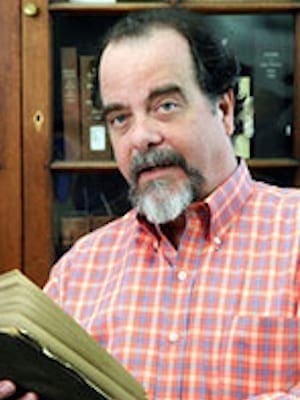May 13, 2014, would have been the 101st birthday of William Richard Tolbert Jr.
Thirty-four years ago, April 12, 1980, Tolbert, the 20th president of Liberia, was assassinated in a coup d’état that ended the so-called First Republic of Liberia and served as a prelude to 34 years of decline, war and struggle. Now Liberia is hoping for restoration.
In 1964, Tolbert was the president of the Liberia Missionary and Educational Convention (LBMEC) and the vice president of the Republic.
At the annual session of the LBMEC, Tolbert challenged Liberian Baptists finally to act on the “educational” part of their identity. Twelve years later, the seminary opened its doors.
For many years, the Tolbert family has sponsored The Tolbert Leadership Lecture Series as an annual event hosted by the Liberia Baptist Theological Seminary (LBTS).
The 2014 Tolbert lectures focused upon three aspects of Tolbert Jr.’s legacy: politician, father and prelate.
A nephew, Richard V. Tolbert, accepted the task to address the political legacy. A son, William R. Tolbert III, took up the assignment to comment on the legacy in the family. Walter D. Richards, who saw Tolbert as a mentor and had a stint as Tolbert’s executive assistant, agreed to reflect upon the legacy as a minister.
William Tolbert Jr. was a man of tremendous energy and efficiency.
In addition to presiding over the Republic and the LBMEC, he was an active pastor, a farmer, a banker, a man of business and the very-present father and husband to a family of 10. He was indefatigable in every part of his life.
From 1965 to 1970, Tolbert also was the president of the Baptist World Alliance. In that position, he was a pioneer for people of color and non-Westerners to be recognized and entrusted with positions of leadership.
On the first day of the series, Richard V. Tolbert delivered a paper, “The Triumphs and Tribulations of a Tragic Figure in the Pantheon of Great African Leaders,” on the political legacy of his uncle, which had the twin edges of academic objectivity and passionate personal acquaintance with his subject.
Richard Tolbert employed Aristotle’s assessment of “the tragic hero” and applied it–flaws and all–to his late uncle.
Citing one of William Tolbert’s signature ideas, “humanistic capitalism,” the speaker wove his way along a path between praise and apology.
The apologetic emphasis was clear: In Tolbert’s administration, domestic policies focused on the empowerment of the citizens of Liberia as farmers, laborers and business owners.
The policies carried the hope that the economy of Liberia would improve. And it did.
The emphasis upon the praiseworthiness of Tolbert’s following of his vision was a firm presentation of the late president as a champion of human rights.
Richard Tolbert noted that his uncle pursued policies that eschewed violence, physical and economic, in order to secure desired ends.
In the end, he said, the Tolbert legacy is not stained with the blood of the poor and innocent.
In one chilling sentence, drawn from Tolbert’s 1934 speech as valedictorian of Liberia College, Richard Tolbert glimpsed the life of the late president: “He who wears the crown must first bear the cross.”
William (Bill) R. Tolbert III addressed his father as a family man on the second day. The presentation was efficient and informative.
Listeners glimpsed an intimate picture of Tolbert Jr.’s deep faith, firm guidance and vibrant love for his wife and eight children.
They heard of twice-daily family devotions and prayer, and the demand that the children actually work the farm and learn principles of business and civic responsibility.
In a strong but subdued voice, Bill Tolbert shared reminiscences of the coup and its wake that spread sorrow upon sorrow through the family, including the worldwide Baptist family.
Too, there was the matter-of-fact description of the destruction of everything that the Tolbert family had built up over the generations since immigrating to Liberia from South Carolina following the U.S. Civil War.
There were many places where bitterness about the turns of events would have been accepted by the audience, but never once did Bill Tolbert so much as look in that direction.
Reflecting upon the “crown and cross” line from Richard Tolbert’s lecture on May 13, Bill Tolbert observed, “My father built three caskets, each one intended for his own use. The first two he gave away to a family who needed one. The last, he never got to use.”
The final day of the series featured Walter D. Richards. At 83, Richards is a walking history of Liberian Baptists. He knew all of the Baptist heroes from the Tolbert years.
Physically, Richards has slowed, but intellectually and spiritually he is more alive than ever. His winsomeness and presence was a fitting end to the series.
The president of the seminary, in his closing remarks, noted, “There is no legacy without a heritage.”
What a heritage there is in the life and work of William Richard Tolbert Jr.
 Richard Wilson is the Columbus Roberts professor of theology and chair of the Roberts department of Christianity in the college of liberal arts at Mercer University in Macon, Ga., and, for 2014, the president of the Liberia Baptist Theological Seminary. He blogs at Revisiting Liberia.
Richard Wilson is the Columbus Roberts professor of theology and chair of the Roberts department of Christianity in the college of liberal arts at Mercer University in Macon, Ga., and, for 2014, the president of the Liberia Baptist Theological Seminary. He blogs at Revisiting Liberia.

